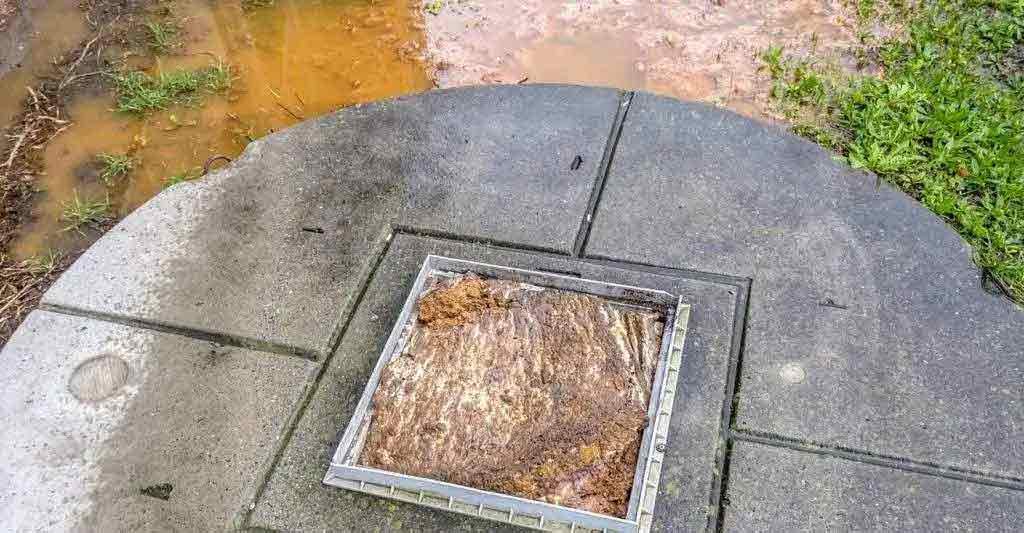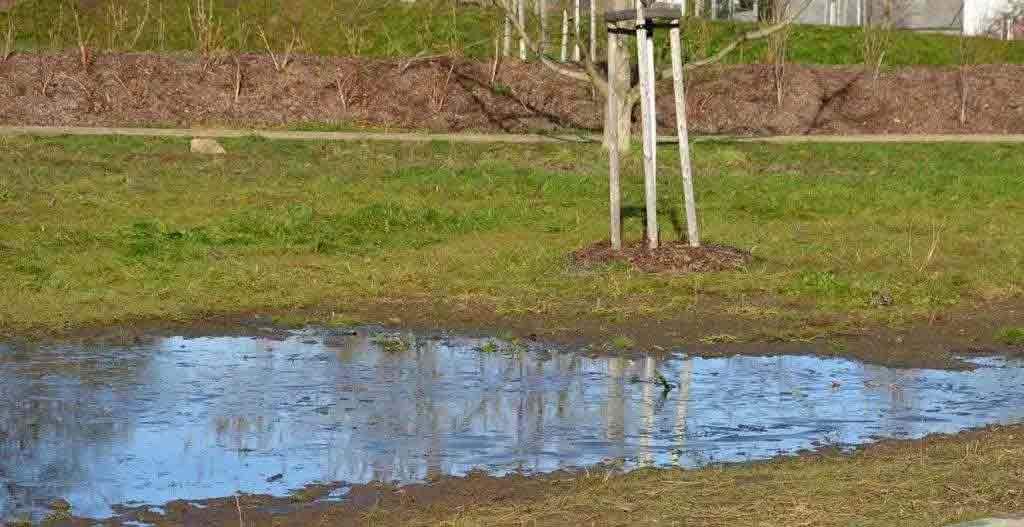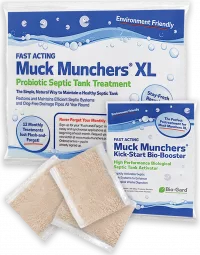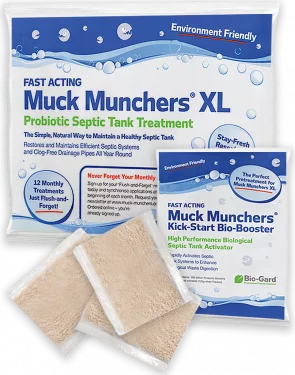What to Do if Your Septic Tank Overflows
Septic tank overflows can be alarming and there are some circumstances where you may find that your tank starts to seep over – and for many, it can be a moment to panic. However, you can take action. Septic tanks can be complex to manage – and sometimes, even sensitive to maintain over time.

With regular top-ups of Muck Munchers and taking care over what you flush, there is no reason why you should ever worry about septic tank overflows.
Septic tanks are designed to be robust and efficient – but if you do notice your tank starting to leak or overflowing, there are a handful of things you can do to get your system back on an even keel.
What to Do When You Notice Your Septic Tank Overflowing
If you notice septic tank overflows, don’t panic. There are things you can do immediately to make sure the problem does not get any worse.
Unfortunately, it may be the case that you need to call for a septic tank inspection, repair or pump out. such circumstances can be expensive and can also be avoided.
In other cases, you may simply need to wait for the problem to subside – providing you reduce your water usage for a few days, the issue may resolve itself.
Stop Using Excessive Water
The more water you flush into your septic tank while it’s in this condition, the more it is going to overflow.
Ideally, stop using water except when absolutely necessary. This means that you may have to resort to avoiding baths while taking the meanest of showers until the problem is fixed. It also means avoiding running your washing machine and dishwasher until your wastewater levels dissipate.
Inspect Your Tank
If you can, try to take a closer look at your septic tank and system. Is there significant damage to any of the tank’s filters or baffles? What about your soakaway or drainage field – are they working as they should?
It’s important to check whether your drainfield is blocked-up and backing-up, up or if it is flowing freely as normal. If it’s backing up, there may be a blockage that needs to be removed.
Check your tank, too – if it’s full to the brim, something is blocking drainage into the drainfield. Do note that your tank should always be fairy full with the surface level with the outflow drain pipe. If your tank is not full to that level, it maybe there’s a blockage between your home and the septic tank itself.
Beyond this, if you have a package sewage treatment system, be sure to check that your pumps are working properly.
Consider the Reasons Why You May be Experiencing Septic Tank Overflows

Regardless of damage or your septic tank’s current situation, you need to carefully consider why it is overflowing at all. There are many reasons that can cause septic tank overflows to occur – and they do not all revolve around the tank itself.
Does Your Soil Type Allow Free Drainage?
Ideally, your septic tank should be set up with a drainfield and soil that allows for free drainage. For example, if your tank’s wastewater soaks into clay, it simply won’t drain as efficiently. If this is the case, you may simply need to wait the problem out.
How High is Your Local Water Table
In some areas the local water table can rise if there has been significant rain or in winter. Therefore, it is not unheard of for septic tanks to drain slowly – or to overflow after heavy rainfall. Again, this is a problem that you can partially avoid by monitoring how much you flush.
How Many People Have Recently Showered or Bathed?
Septic tanks can overflow or back up temporarily if they are subject to heavy, concentrated usage in a short space of time. Be mindful of how often people in your household bath or shower! Try to space out bathing over an extended period, rather than one after another.
How Many Laundry Loads Have You Recently Done?
Just above, if you run your washing machine too frequently over a short period, you run the risk of overloading your septic tank and causing septic tank overflows. If your tank is overflowing and you have recently put through three or four loads one after another, then perhaps all you need to do is wait for the levels to settle down again.
Have You Recently Experienced Heavy Rain
Rain is not something that any of us can control. It can have a negative impact on our septic levels. Gutters should never discharge into septic tanks but into separate soakaways, away from the septic drainage field. This may not be likely to affect those tanks with low effluent or wastewater levels, but it’s still a major cause of overflow problems.
Do You Share Your Tank with Other Households?
When you install your septic tank, you will likely know whether or not your system is exclusive to your household. However, when you purchase a house with a septic tank attached, it may not be immediately obvious whether or not you share your septic system with neighbours.
Be sure to ascertain this at the point of sale – and if your tank backs up (and you’re following all the best flushing behaviours), perhaps you need to speak to your neighbours.
When Did You Last Have Your Tank Pumped?
You shouldn’t need to pump your septic tank out more than twice a decade. It’s expensive and unnecessary otherwise. However, if you are reaching the five-year mark and have otherwise looked after your tank, it may be that it is simply time for clearance. To check the amount of sludge in the bottom of your tank and whether it needs to be pumped, take a look at our article ‘How to Maintain Your Septic Tank’ which explains how to gauge the level of sludge.
Are the Exit Drains from Your Tank Blocked?
If your drainfield appears not to be blocked, but the exit drain is blocked between the tank and the drainfield inspection point (not all systems have this facility) you may need to call in a specialist to remove any blockage.
Monitor Septic Tank Overflows
Above all, the best thing to do in the event of septic tank overflows is to monitor how the situation persists. Try to manage your water usage over two to three days. If the problem relates to your local water table, the issue should subside with time. However, keeping an eye on healthy septic tank flushing habits is always a must.
Otherwise – it may be that you need to call in an expert. To keep these expensive services at bay, only ever flush toilet paper and natural waste – and keep topping-up on Muck Munchers.










